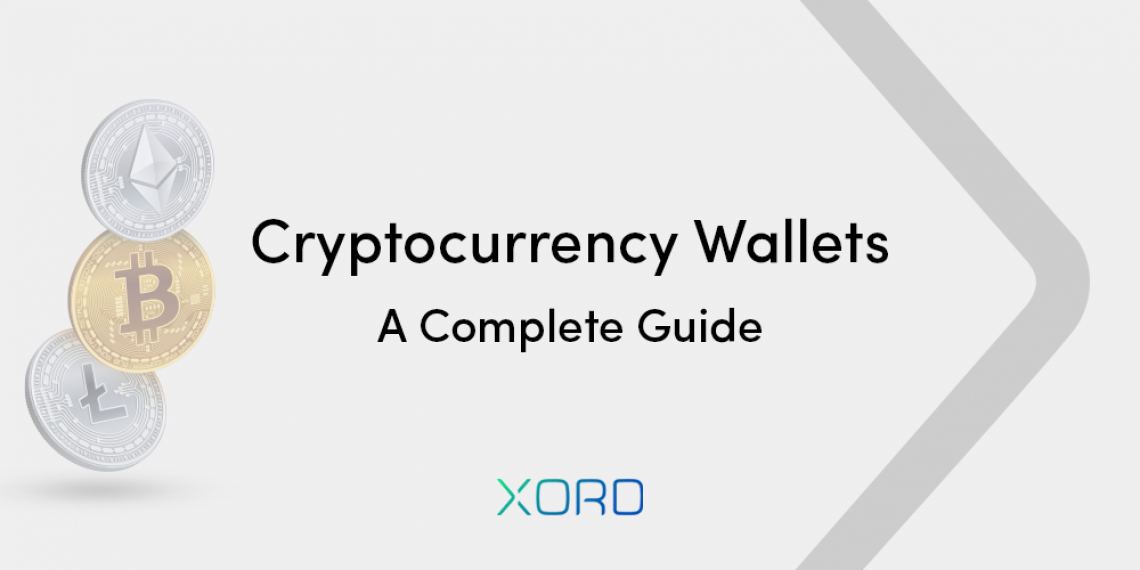Money is anything that has value and can serve as a source of exchange. Centuries back, the people gave cowries value, and it became money before the introduction of fiat currency. In the 21st century, many people decided to use a digital asset called cryptocurrency as a form of exchange. Cryptocurrency has gained much popularity since its inception in 2009. However, many people still need guidance on how to use it. It is easy to start using cryptocurrency, though you have to get a cryptocurrency wallet. The cryptocurrency wallet works precisely like the wallet in our traditional financial system. In the conventional financial system, you would need a place to store your fiat to preserve it from damage or protect it from theft. Whatever you use to store your fiat is a wallet. The same principle applies to cryptocurrency wallets.
Cryptocurrency Wallet
A Cryptocurrency wallet is a digital container that stores public and private keys for cryptocurrency transactions. Because cryptocurrency is a digital asset, it cannot be stored in a traditional wallet. A cryptocurrency wallet is a device used to send and receive cryptocurrency. There are thousands of cryptocurrencies, and each has its unique supported wallet. No two cryptocurrency wallets are the same. For example, a bitcoin wallet can only receive or send bitcoin and supported coins, while an Ethereum wallet can only receive and send Ethereum and Ethereum standard tokens called ERC-20. Similarly, there are also wallets for securing Tron-based coins called TRC-20 wallets.
To accommodate the wide range of crypto assets there comes the need for a multi-assets, standard wallet infrastructure. So far there are multi-assets and standard wallets, namely; Trust Wallet, Ledger, BC Vault, SafePal, MetaMask, and many others. Using this class of wallets is as simple as the others. All you need to do is to select and copy the right wallet address of the asset.
Working Of Cryptocurrency Wallets
You can liken a cryptocurrency wallet to your traditional bank account number. Ordinarily, when you want to operate a bank account, the bank gives you an account number specific for you. You can share the account number with people. There is no risk attached to sharing your account number with friends, family, and even your enemies. Similarly, a cryptocurrency wallet is similar to an account number, but this time, it comes in randomly generated alphanumeric characters.
Once you download a wallet, you would get a unique code generated automatically. This code consists of numbers and alphabets. To get funds into your wallet, you can share the unique code attached to your wallet, and you would receive any funds sent into the wallet.
Types Of Cryptocurrency Wallets
There are generally two basic types of cryptocurrency wallets: hardware and software. However, sometimes they are classified into five main types of wallets: mobile wallets, web or online wallets, desktop wallets, hardware wallets, and paper wallets.
Mobile Wallets
Mobile wallets are mobile apps or DApps which you can download from the Google play store. Similar to other apps, it can be used anywhere with an internet connection. It is specifically used for securing your private and public keys.
Web Wallets
A web or online wallet is different from a mobile wallet because it runs on the cloud. It could be accessed from any device that is connected to the internet anywhere. Though it is easy and convenient to use, you must be aware that a third party controls your private keys, and it is easier to be hacked and stolen.
For example, a centralized exchange like Hotbit and Binance stores your coins on their server. Any problem with the exchange, such as hacking, can make you lose all your funds. It is advisable to use a web wallet with caution.
Desktop Wallets
As the name implies, desktop wallets are wallets on your computers. Desktop wallets are more secure than mobile wallets or web wallets because they can only be accessed on the computer you downloaded them on. The disadvantage is that your funds can be gone once your computer is misplaced or stolen, or if there is a virus on it.
Hardware Wallets
Hardware wallets are the most secure wallets available. The hardware wallet stores your private and public key on a hardware device offline. You can transfer funds to another person by connecting your device to the internet, after which you disconnect. It is almost impossible for a hacker to infiltrate your wallet because you enter your private key into the device and not the internet. So hardware ensures you keep your fund offline to avoid the danger of losing it.
Paper Wallets
Paper wallets are not mostly talked about, though it is safe and easy to use. A paper wallet refers to a printout of your private and public keys on paper. You can receive crypto to your paper wallet by sending the public address you printed on your paper to the sender. You can also send your crypto to someone else from your paper wallet by entering the keys into a web wallet or by scanning the QR code on the paper. The process of sending crypto from your paper wallet is called sweeping.
Paper wallets are highly secured because they are kept offline and not online; hence no hacker or person can get them online. The only way to get your fund is if another person has access to your paper, thus keys.
Software And Hardware Wallets
Each of the wallets has its advantages and disadvantages. An average cryptocurrency user cares about software wallets without knowing that hackers could strike anytime. On the other hand, a hardware wallet, since it’s hardware that houses a user’s private keys, had no access to the internet except when it was connected to transfer and swap funds.
Primarily, software wallets users depend on third parties for fund security because when it is not your keys, it’s not your coin. However, it is more accessible and easy to use than hardware wallets.
Cryptocurrency Wallets And Security
Cryptocurrency is a volatile asset and should be kept safe. Please note that securing your private key is the goal of securing your crypto. No matter the wallet you use, your crypto is unsecured once your private key is compromised. Nevertheless, the type of wallet you use is vital as the risk attached to each differs.
Recall that we discussed the five types of wallets above. The most secure wallets are wallets that are free from the internet. These wallets are paper and hardware wallets. Though wallets that use the internet consistently, like web and mobile wallets, are less secure, you can always ensure you keep them secured by outsmarting hackers.
Hackers can access your funds through malware, phishing, and more. Those who use centralized exchanges and have a web address are at greater risk, as the exchange can make away with their funds.
Below are some of the things you can do to protect your funds from loss:
1. Try as much as possible to avoid using centralized exchanges. If you must use it, ensure you keep what you can afford to lose on it. Also, ensure you always log in to the site from secured internet access. Do not use public Wifi to access the site, and ensure you log in to the correct website alone.
2. Always ensure your device software is up to date to get the latest security support. Old software is an easy target for hackers, and it can easily be compromised.
3. Consider having a wallet that allows multiple signatures. Multiple signatures mean that you cannot send funds with only one device. You must authenticate transactions using more than one device. Multiple signatures ensure that your funds are secured even if you misplace your device, as the person who has the device cannot use it without the other devices.
4. Always backup your wallet regularly to regain access to your wallet if there is a crash to your system or hard drive.
5. Use complex passwords and authenticators to protect sending your funds to unknown people.
The Best Cryptocurrency Wallet
The best cryptocurrency depends on what you decide. After reading my thoughts above, you should have a better understanding of the cryptocurrency wallets. There are numerous cryptocurrency wallets. We will look into some of them which has good ratings and acceptance.
BC Vault
BC vault is the wallet of choice when we are talking about security. While other cryptocurrency wallets use BIP39 or BIP44 libraries to generate seeds that could be compromised during a leak, BC vault uses a gyro sensor (RNG) to generate separate keys for each user, making them more anonymous. RNG makes your wallet more secure compared to the BIP model.
There are five layers of security associated with the BC vault. These layers are global password, global pin, the device itself or a backup, wallet password, and wallet pin. BC vault gives you complete access to your keys, and that gives you the power to have your bank in your hand.
BC vault has support for many coins ranging from bitcoin to ERC-20 tokens. The price is affordable when compared to the security that comes with the wallet.
Ledger Nano S Wallet
Ledger Nano S wallet is a hardware wallet that is highly secured. Once you buy a ledger nano wallet, you get a physical device to store your cryptocurrencies offline. To send crypto to someone, you need to connect the wallet to your laptop, enter your pin and send.
Exodus
Exodus is a free cryptocurrency wallet that supports multiple coins. It is user-friendly and straightforward to use. You can also use this wallet to buy and sell cryptocurrency, and your private keys are secured as no other person has information about it except you.
Bread Wallet
Bread wallet is another free, open-source wallet made to store your cryptocurrency. There is a direct connection between the bread wallet and the bitcoin blockchain. One of the disadvantages of the bread wallet is that it does not support two-factor authentication.
Trust Wallet
Trust wallet is a multi-coin-supported free wallet on mobile. It includes a decentralized application section (dApps). It is easy to use for trading on decentralized platforms such as PancakeSwap, and it is highly secured. You would get a seed phrase after registering on Trust Wallet, which must be kept safe. The seed phrase is the only way you can access your account if you lose or change your phone. You can set a password for all your transactions in the wallet. The password ensures all funds sent from your wallet are with your permission.
Metamask Wallet
Metamask wallet is a crypto wallet that supports multiple coins. It is free and has a dApps section. You would have a seed phrase after registering, which must be kept safe. The seed phrase is the only way you can access your account if you ever lose or change your phone.
Jaxx
Jaxx is a wallet that supports multiple coins. It is accessible by various platforms, with an android device, iOS device, Windows, Linux, Google, and more. It is highly secured, user-friendly, and has excellent user support.
Conclusion
In conclusion, a cryptocurrency wallet is a software or hardware that keeps you in control of your digital funds. Many people are waiting to devour unsuspecting cryptocurrency user’s funds. Therefore it is essential that you choose a secure Crypto wallet to be safe. If you have read this article and understood it, you should be more armed with information that would save you from scammers and hackers. In closing, I would like to reemphasize that your top priority is a hardware wallet because it allows you to control your keys, Unlike software wallets that are managed mainly by third parties. For instance, your funds in a centralized exchange, though sometimes trusted, are not in your care, so you should be while using them.
Also read on Ethereum Hard Forks.





